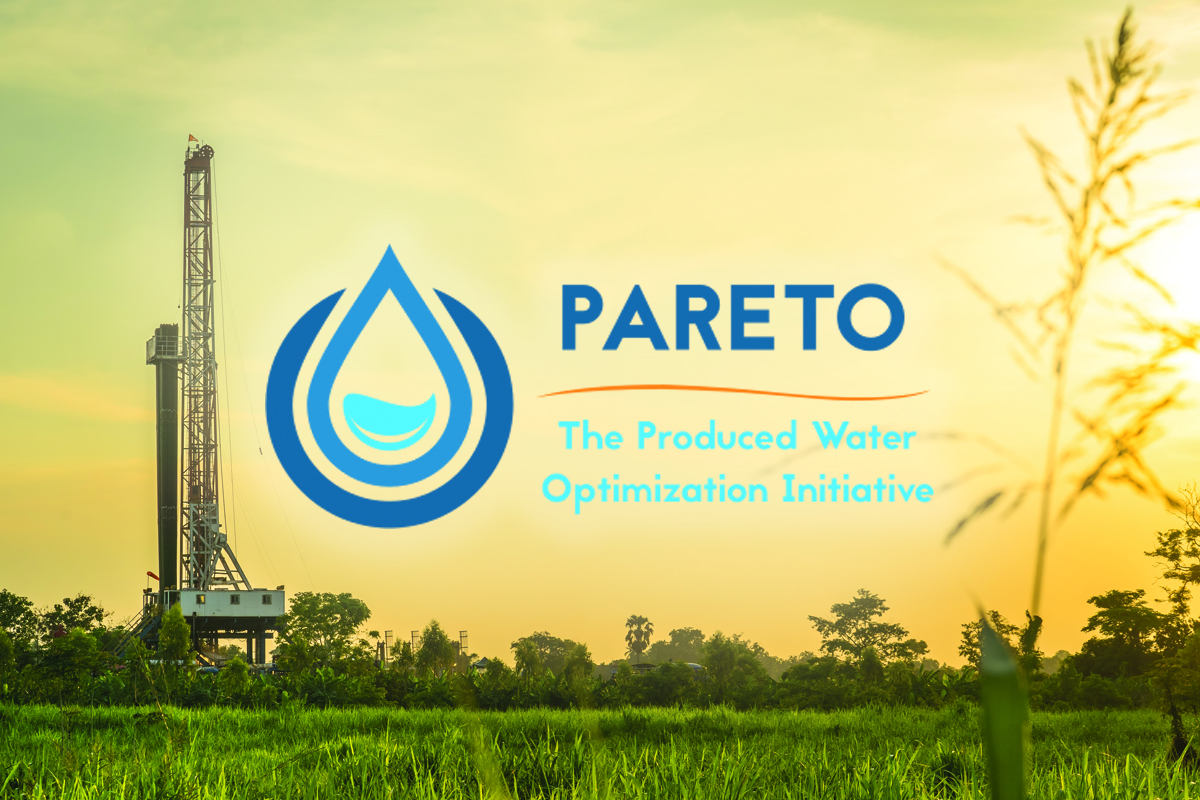 The U.S. Department of Energy’s (DOE’s) Produced Water Optimization Program (PARETO) framework, a collaboration between Lawrence Berkeley National Laboratory (Berkeley Lab) and the National Energy Technology Laboratory (NETL), was named a winner in Hart Energy’s 2022 Special Meritorious Awards for Engineering Innovation (MEAs) for its water management capabilities. The MEA program recognizes new products and technologies that demonstrate innovation in concept, design, and application. PARETO, a free and open-source software tool, is an optimization framework for water management that empowers practitioners, researchers, and policymakers to identify cost-effective and environmentally sustainable ways to manage, treat, and beneficially reuse water produced from oil and gas operations.
The U.S. Department of Energy’s (DOE’s) Produced Water Optimization Program (PARETO) framework, a collaboration between Lawrence Berkeley National Laboratory (Berkeley Lab) and the National Energy Technology Laboratory (NETL), was named a winner in Hart Energy’s 2022 Special Meritorious Awards for Engineering Innovation (MEAs) for its water management capabilities. The MEA program recognizes new products and technologies that demonstrate innovation in concept, design, and application. PARETO, a free and open-source software tool, is an optimization framework for water management that empowers practitioners, researchers, and policymakers to identify cost-effective and environmentally sustainable ways to manage, treat, and beneficially reuse water produced from oil and gas operations.
With water production, demand, and transportation data, PARETO can help determine the selection of effective treatment technologies, placement and size of treatment facilities, beneficial water reuse options, and distribution of treated produced water for reuse, all while simultaneously improving the coordination of water deliveries over time. The initiative is committed to viewing produced water management from a “systems” perspective and to building an inclusive framework that will unite stakeholders from across the produced water community. The vision is that PARETO will not only help oil and gas but also allow other industries (e.g., agriculture, mining) to explore beneficial reuse opportunities for treated produced water. PARETO is Python-based and is publicly available via GitHub.
“This award is a wonderful recognition of the hard work of the team on developing PARETO’s platform to enable approaches to optimization of treatment and reuse of produced water,” said Deb Agarwal, principal investigator of PARETO and interim director of the Scientific Data Division.
Large oil and gas operators spend hundreds of millions of dollars annually on transporting, reusing, or disposing of water associated with oil and gas development activities, significantly affecting their operating expenses. Yet, few energy companies have reported using optimization technology for produced water management in practice.
To address these challenges, in 2021, DOE launched a three-year, $5 million produced water optimization initiative called “Project PARETO” specifically for produced water management and beneficial reuse. Berkeley Lab and NETL collaborated with natural gas producer Olympus Energy to develop the software.
“We at Berkeley Lab are excited to be working on developing the user interfaces that will go that ‘last mile’ and allow produced water experts, who aren’t experts in optimization, to utilize the full power of the platform,” said Dan Gunter, senior personnel in PARETO and lead of the User Interface Development team in the Scientific Data Division.
Ultimately, PARETO is expected to become an optimization-based decision-support application that can provide users with specific and actionable recommendations on where to build water pipelines and how to size them; how produced water deliveries should be coordinated; which treatment technologies to select, where to place them, and how to size the respective plants; which beneficial reuse options to consider (for example, agricultural reuse or the extraction of critical minerals); and how to distribute treated produced water and/or concentrated brine to potential end users (farmers or mining companies).
From an environmental perspective, PARETO is expected to help organizations improve the utilization of existing produced water infrastructure, reduce trucking of produced water, reduce the injection of produced water into the subsurface, decrease freshwater consumption for oil and gas development activities, identify beneficial reuse options and explore opportunities to extract critical minerals, such as lithium, from produced water.
About Computing Sciences at Berkeley Lab
High performance computing plays a critical role in scientific discovery. Researchers increasingly rely on advances in computer science, mathematics, computational science, data science, and large-scale computing and networking to increase our understanding of ourselves, our planet, and our universe. Berkeley Lab's Computing Sciences Area researches, develops, and deploys new foundations, tools, and technologies to meet these needs and to advance research across a broad range of scientific disciplines.

